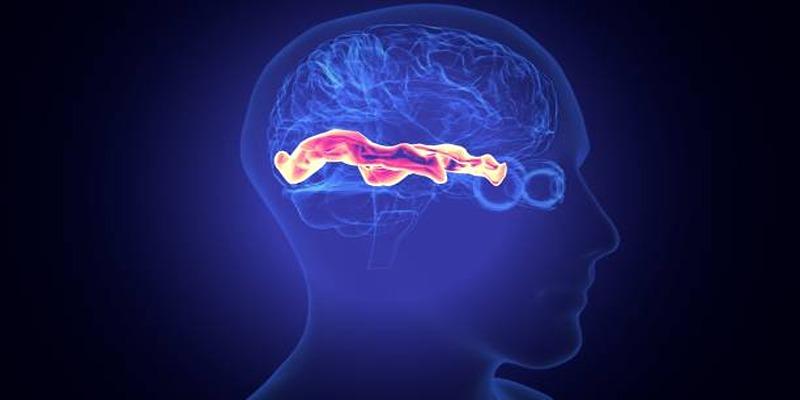Alzheimer and dementia generally feature myths that generate fear, stigma and misunderstanding. Misinterpretations may grant little time to diagnose, restrict patients to treatment and cause unnecessary suffering to families. We can increase awareness by making a distinction between reality and fiction, therefore eliminating stigma, and offering better support to the victims.

The loss of memory is one of the initial notions that people attribute to Alzheimer. Fortunately, forgetfulness does not always represent dementia. Memory can be influenced by stress, exhaustion, anxiety, thyroid problems, vitamin deficiencies or even medicine side effects. It is quite normal to forget a name now and again and/or loss of places so that it might not be a sign of Alzheimer disease.
One of the symptoms of Alzheimer is the memory loss, which tends to be long-lasting in time and also deteriorates, in most cases, with the difficulty to remember the latest events or a familiar place, or to track a conversation. The difference is in its influence on the day-to-day functioning the inability not just to remember but also to engage in processes that were once second nature.
Admittedly enough, increasing age becomes the biggest risk factor of Alzheimer, but it does not concern only aged people. Although a majority of instances happen when an individual is above 65 years, early-onset Alzheimer disease may occur in individuals as early as 40s /50s.
This myth has always resulted in late diagnosing among young people as the symptoms are being ignored as stress or overwork. Misfortunes are, that delay in evaluation can not provide timely intervention and opportunities to access resources can be lost by the family. The awareness that the age of people can be beyond the age of age in Alzheimer disease can be contracted is also relevant in holding symptoms seriously no matter the age.
The myth that dementia is a natural ingredient of growing runs among the most harmful myths to have. Whereas the process of aging is accompanied by mild forgetfulness, dementia entails a lot of brain cell damage that is not necessary. Sharp and quick memory coupled with sound reasoning are some of the benefits that enable many people to live long lives.
The distortion as an inevitable condition of old age opposes the early detection of dementia and undervalued the significance of the brain health. Some aspects that help in keeping the mind strong include physical activities, healthy diet, life-long education and social interaction. Dementia should be considered a disease that should not be seen as a normal phase of life but a condition, recognition, and anticipatory health support.
A lack of a definite cure tends to develop an illusion of despair, which is misleading to believe that there is nothing one can do about it. Alzheimer is a progressive disease, but it has methods and medicines to help control the symptoms and improve the lived in life.
Medicines can be used to enhance memory, mood assertion or minimize change of behaviour. The presentation of the non-medical interventions like cognitive exercises, music therapy, or daily routines with personal assumptions can greatly enhance well-being. Early detection is essential because it enables patients and family to prepare care, take lifestyle measures, and supportive services.
Even though one of the most obvious symptoms is memory impairment, Alzheimer welfare influences much more than the ability to memorize. In the long run, the disease may affect the capacity to communicate, reason, and the former familiar tasks. There can also be emotional shifts (increased anxiety, irritability or withdrawal).
Later in the illness, people might have a difficult time organising their meal, budgeting, or even negotiating even well-known spaces. Finally, the physical functions may be impacted as walking, swallowing, and balance. The understanding of Alzheimer's being a whole-brain illness rather than a mere memory disability is one of the factors that helps the family to prepare the holistic nature of the care that patients will need.
Genetics is not a guarantee that it is risky in Alzheimer, although it predisposes it as well. Close relatives of those already affected by the disease can raise the chances although there are numerous individuals with no family history who develop dementia. Similarly, someone with a good family history may never experience any symptoms.
There are several risk modification factors such as environmental exposures, lifestyle, and cardiovascular health. This implies that family history is important but it does not dictate the fate. Taking positive action like ensuring that one has the right body pressure, closest exercise routines, using the brain, social networks among others can all reduce the overall threat of influence whether they are predisposed or not.

The most detrimental myth about dementia is probably that when it is thought we have it, then our living is over. Despite the burdens that the disease imposes, many individuals still lead full lives, engaging in fulfilling activities, sustaining relationships, and helping others in their societies.
Through care support, follow-up routines, and successfully met engagements, people with dementia would be able to live a happy and meaningfully filled life. Outlets like painting, gardening, or music are also usually available far in to the development of the condition.
Research into Alzheimer’s and other forms of dementia is advancing rapidly. Scientists are exploring ways to detect brain changes earlier, develop new medications, and better understand the relationship between lifestyle and cognitive decline. Each discovery brings us closer to improving outcomes and offering greater hope. Until then, separating fact from fiction remains essential. By challenging misconceptions, we can reduce fear, promote early action, and build supportive environments for those affected.
 TOP
TOP
Curious about when to claim your Social Security benefit? Learn how age, health, income, and other personal factors influence this important decision and shape your retirement future
 TOP
TOP
The joys of spontaneous travel with tips for unplanned adventures, packing light, and connecting with locals for unforgettable experiences.
 TOP
TOP
Discover thrilling day trips near Cape Town, featuring stunning landscapes, cultural experiences, and adventure for every traveler.
 TOP
TOP
Discover the truths and misconceptions about medical research studies in this insightful article.
 TOP
TOP
The benefits of outdoor activities for improving physical and mental well-being.
 TOP
TOP
Discover the truth about cold weather and its link to sickness in this science-based article.
 TOP
TOP
Identify emotional clutter and discover practical ways to declutter your mind for clarity and peace.
 TOP
TOP
Debunking 7 common myths about Alzheimer’s and dementia for clearer understanding.
 TOP
TOP
Untreated GERD can cause esophagus damage, Barrett’s esophagus, dental erosion, and cancer. Learn symptoms, risks, and why early treatment matters for health.
 TOP
TOP
Aphantasia affects mental imagery, memory, and creativity. Explore its causes, cognitive impacts, coping strategies, and real-life adaptations for navigating life without a mind's eye.
 TOP
TOP
Mental health shapes our well-being, productivity, and equality. Learn why it matters for everyone and discover ways to build stronger support systems.
 TOP
TOP
Learn to identify whether your eyelid bump is a stye or a chalazion, understand the causes and symptoms, and explore effective treatment options for better eye health and comfort.